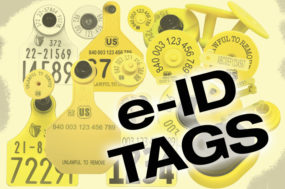Whoever said ignorance is bliss has never been on the losing end of an idiotic situation that could have been avoided with a little more tact and a lot more education. Ignorance, as defined by Merriam-Webster is a “lack of knowledge, education or awareness.” I don’t know about you, but I have seen a lot of that lately, whether it’s on social media, the news or a conversation with someone who happens to stand on the other side of the fence from me on everything from politics and social issues to the correct doneness of steak – all I’m saying is that you shouldn’t be able to play hockey with it.
In the last few years, the U.S. has seen a lot of social unrest surrounding social equality, especially the Black Lives Matter movement and other protests this past year. Social movements – this one in particular – have made me stop and think a bit about how I look at the world. I have realized that there are a lot of different kinds of people in the world, and therefore, there is bound to be myriad points of view on every issue under the sun and that if we don’t lower our hackles a little bit and try to understand other folks’ points of view, we will be headed nowhere fast.
Lack of or refusal to understand other people’s points of view is where ignorance comes into play. Anyone with an agenda and an ounce of cleverness can find ways to use people’s ignorance and the fundamental truths that people fear what they do not understand and need an outlet for their anger to bring about a specific result. It worked great in Nazi Germany. Hitler used propaganda and wildly moving speeches to weaponize the ignorance and fear of a poverty-stricken German people, still recovering from serious losses from World War I, and made the Jews a scapegoat for all their problems. He gave them something to unite in: hate. This little social movement culminated in the deaths of more than 75 million civilians and soldiers.
This approach has worked great for other social movements – ones that didn’t end up starting a world war. Different aspects of the Black Lives Matter movement are an example of this. On one hand, rioting mobs have caused damage in cities across the U.S., helping make 2020 the dumpster fire that it was. On the other hand, peaceful protests and persistent campaigning after the mobs went home generated more awareness of social inequality that has begun to seep into the fabric of society and make changes to everyday life.
When you compare these two approaches to an issue, which one is more effective? The first method caused chaos and fear, but after the initial stage was over, it lost its momentum. The second method has now grown roots and is not even close to stopping. One method caused a big scene and got most of the attention at first, but the other quietly persisted until they carried their point. What can we conclude? Riots do not solve anything. Inflicting violence and destroying someone else’s livelihood has never brought about positive change. Calm, persistent advocacy is ultimately more effective.
What does my sermon on social movements have to do with the beef industry? Glad you asked.
The beef industry is entering a very challenging time. We now have a president who is very interested in climate change and reducing the carbon footprint. The ag industry in general, and the beef and dairy industries in particular, are going to be under the microscope on this. We are going to be bombarded with policy changes and legislation and many ignorant people trying to tell us how to do our jobs. Alexandria Ocasio-Cortez and the Green New Deal were just the warmup act.
We are ready. We have the science. We have great advocates like Sara Place, Frank Mitloehner and many others who have devoted their careers to studying sustainability and representing ag. However, we cannot leave the defense of the U.S. ag industry to them alone. As members of the beef industry, we have to be ready to get to work. The key to staving off a tide of anti-ag policy lies in educating people through calm, persistent advocacy. Think about it. What is your average resident of Seattle or New York City going to know about animal agriculture? Not much. They’re going to know all about what pollution looks like, though, and if someone tells them it’s because of animal agriculture, how are they to know any different?
As unappealing as it might sound, it is critical that we as an industry be part of that education and outreach process. Invite school groups to your operation for a field day. Talk to your local lawmakers, contact your members of Congress and see what you can do to educate those within your sphere of influence. Work with existing organizations to reach out to people who need to learn more about the beef industry. Do your best to maintain patience and an open-gate policy when it comes to teaching people about ag, because contrary to popular opinion, yes, there are stupid questions.
And, if all of these efforts fail and we get saddled with more restrictions and more roadblocks for our industry, keep the torches and pitchforks at home, because riots have never solved anything.





